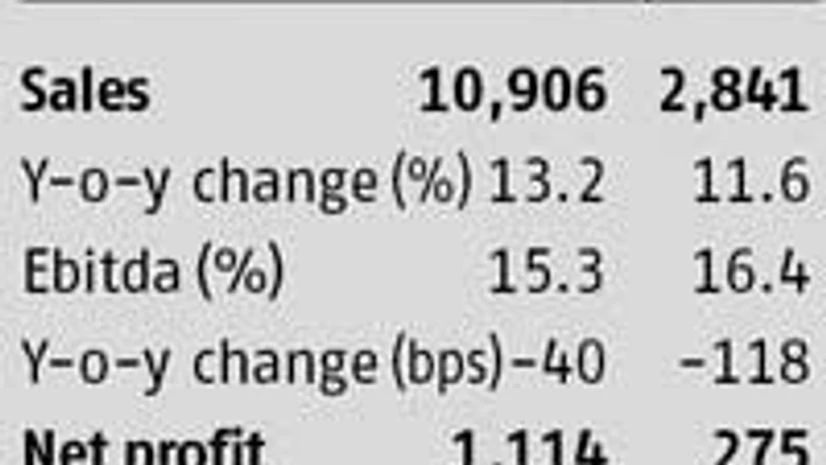The company said volumes grew in double-digits, which analysts believe would be close to 10 per cent in June 2013 quarter, better than expectations of seven per cent volume growth. Part of it could be attributed to a low base, given that volumes had contracted by about two per cent in the year-ago quarter; the same inched up two per cent in the March 2013 quarter. For the full year, analysts expect volume growth to come at about seven-eight per cent — similar to that in FY13. However, given that a weak rupee could offset gains from lower input prices and valuations are rich, the upsides are limited.
Cost Pressures, Weaker International Business
Higher employee costs (up 26.7 per cent) and other expenses (up 22.9 per cent) led a 118 basis points contraction in earnings before interest, taxes, depreciation and amortisation (Ebitda) margin, compared to the year-ago period. These expenses were towards the new plant commissioned at Khandala, which also led to an increase in depreciation. However, while correction in the price of titanium dioxide (a raw material) was a positive, rupee depreciation has offset the gains. “Raw material prices were by and large stable with a softening bias, but were affected by the depreciation of rupee”, said K B S Anand, managing director.
However, given that the company has forward hedges in place, the impact of a weaker rupee is expected to be visible with a lag effect. The actual impact on margins will also be a function of the quantum of price hikes (if any) the company takes going ahead. Asian Paints had taken marginal price hikes of 1.5 per cent in the June 2013 quarter.

A higher tax rate (up 292 basis points to 32.8 per cent) put further pressure on its net profit. While decorative segment grew well, industrial paints segment was hit by falling auto sales and economic slowdown.
The company’s stand-alone results (representing the domestic business) were better than the consolidated numbers with revenue growth at 12.9 per cent to Rs 2,320 crore and net profit growth of 3.4 per cent to Rs 284 crore. Thus, indicating that the weakness in International business (13 per cent of consolidated revenues) has continued in the June quarter as well. “Middle East and Asia have done well even though some countries continued to be affected by political events and macroeconomic uncertainty,” said Anand. The weakness in Caribbean markets is likely to continue over the next few quarters, according to analysts.

Asian Paints’ scrip fell 1.7 per cent on Monday as against a flattish Sensex. It has had a good run over the past four years and has outperformed the Sensex significantly. This is partly driven by the company consistently gaining market share, especially in the premium emulsion paints segment. Asian Paints has maintained its No 1 position in the paints market, despite increasing competition from smaller peers.
However, the medium-term outlook is not very buoyant for the company for multiple reasons. One, demand in the paints sector has been impacted by slowing economy. Second, Asian Paints recent diversification into the modular kitchens segment (via acquisition of India-based Sleek Group) and possible investments in the home improvement segment may take some time to contribute meaningfully to the profits.
While analysts remain positive on Asian Paints’ prospects (in the core business) from a long-term perspective, most believe the current valuations factor in the positives. According to Bloomberg data, out of nine analysts who covered Asian Paints in July 2013, five remain neutral with average target price of Rs 4,687. This represents a 7.7 per cent downside from Monday’s closing price of Rs 5,077. “The stock has run up in tandem with the rise in most other FMCG stocks. While we are positive on the long-term prospects of the company, at current price, the stock appears fairly valued and will be hit by near-term margin pressures,” believes Roy.

)
